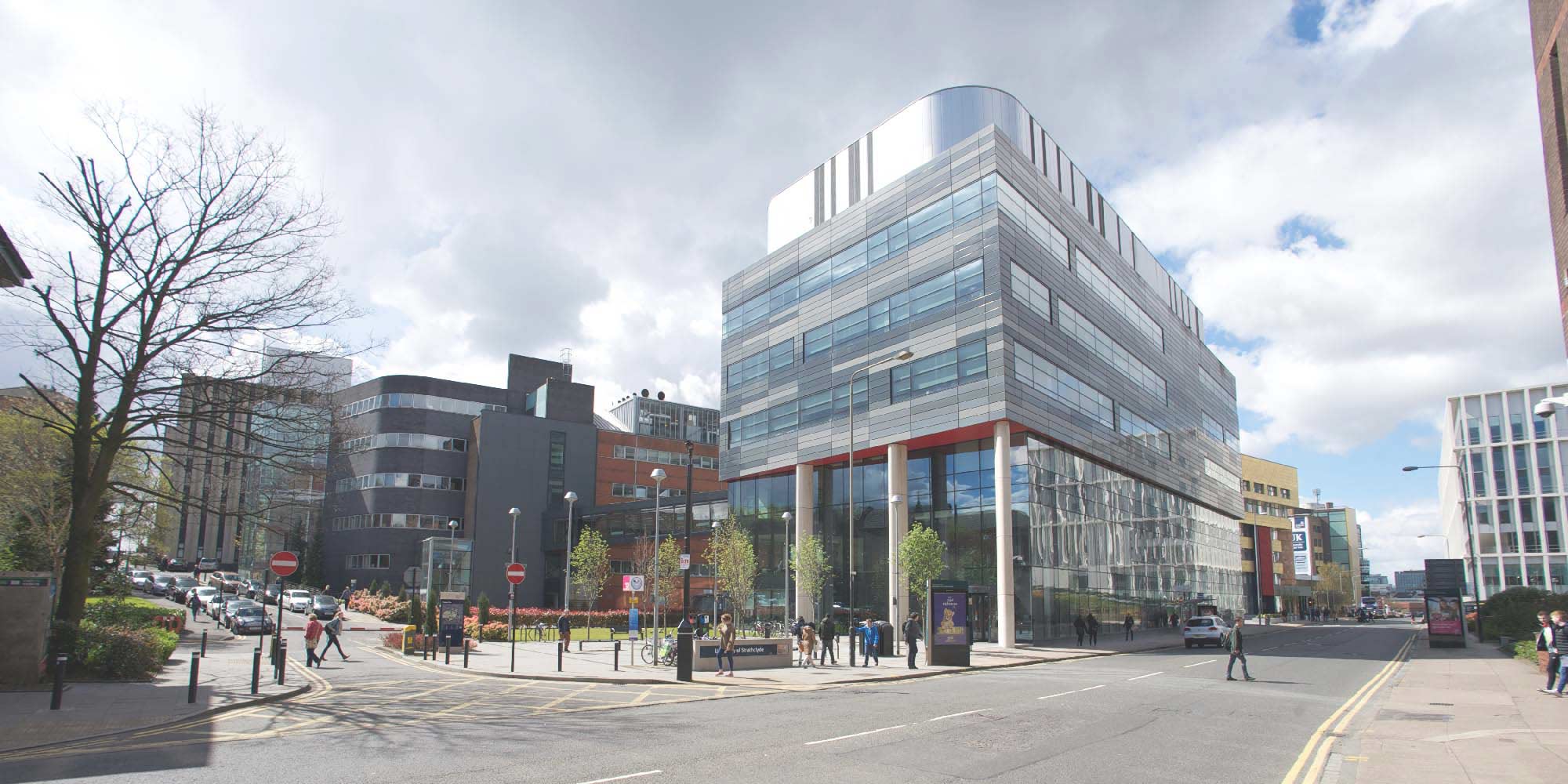BEng Hons Electrical & Mechanical Engineering
ApplyKey facts
- UCAS Code: HH63
- Accreditation: degree has dual accreditation by the IET and the Institution of Mechanical Engineers
Complete University Guide 2022: Top 10 in the UK for both Electrical & Electronic Engineering and Mechanical Engineering
The Times/Sunday Times Good University Guide 2022: 4th in the UK for Electrical & Electronic Engineering
The Independent Complete University Guide 2022: 5th in the UK for Electrical & Electronic Engineering
Study with us
- develop expertise in mechanical, electrical, software and control systems engineering
- participate in the Formula Student competition to design, build and race a racing car
- gain international experience through studying abroad. Access to IET Power Academy & Scholarship programme with paid work placements
- professional accreditation by the Institution of Engineering and Technology (IET), and Institution of Mechanical Engineers
During my degree, I was a summer intern at Scottish Water and had a placement with Davie & McCulloch, a Glasgow-based building services firm. The EEE department’s reputation and connections to industry opened many doors and helped me stand out from the crowd.
Lee McMonagle
Graduate Mechanical Engineer, Arup
Compulsory classes
Engineering Mechanics 1
Engineering Industry & Profession
To provide an overview of industry and give you some understanding of the industry environment that you would enter as well as the types of roles you would/could undertake. To explain role and responsibility of the engineering profession and individual engineer.
The class is delivered to first-year undergraduate students in the specific context of electronic and electrical engineering together with relationship to mechanical engineering and computer systems.
Electronic & Mechanical Techniques & Design 1
This module aims to:
- introduce you to the practical and professional skills required of an engineer
- underpin theoretical concepts introduced elsewhere in Year 1 modules
- introduce you to individual and group project work
- expose you to problems requiring system integration and design
- encourage innovation in the context of project work
- facilitate the development of a range of transferable skills
Electronic & Electrical Principles 1
Heat & Flow 1
Engineering Mathematics 1E
Engineering Mathematics 2E
Compulsory classes
Engineering Mechanics 2
1st Semester
2nd Semester
- statics revision including shear force and bending moment diagrams
- beams in bending
- shear and torsion
- 2D stress and strain
Electromagnetism
Engineering Design & Manufacture
An overview of manufacturing and the manufacturing industry will provide a general appreciation of the range of processes employed in manufacturing together with an understanding of how components can be manufactured economically and reliably.
Electronic & Electrical Principles 2
Digital Electronic & Programming Design
To introduce you to the use of digital electronics and the rudiments of digital signal processing systems.
Electronic & Mechanical Techniques & Design 2
To develop a broad understanding of many aspects of engineering (general electrical and electronic, power engineering, mechanical engineering, computing and software) and to enhance generic skills required of a professional engineer (research, practical, team working, communications, reporting writing, oral presentation).
Heat & Flow 2
This class aims to deliver fundamental knowledge on fluid mechanics and thermodynamics and illustrate their importance to engineering systems.
Thermodynamics is the science that is devoted to understanding energy in all its forms and how energy changes form. The aim of the first semester of this class is to supply the necessary analytical tools to study these energy changes when applied in engineering situations, in particular for transportation and power production. Fluid mechanics and the behaviour of fluids is an important aspect in the performance of engineering systems.
In the second semester the underlying physics of fluid flow and its application to simple systems is presented.
Engineering Mathematics 3E
- to develop the means of solving certain differential equations
- to consider applications of Taylor and Maclaurin series
- to generalise earlier ideas in calculus to deal with functions of several variables
- to discuss in more detail matrices, determinants and functions of a complex variable
- to introduce vector calculus and eigenvalues/eigenvectors
Compulsory classes
Instrumentation & Microcontrollers
INSTRUMENTATION
To develop techniques for system modelling based on block diagrams and transfer functions and to use such techniques in the context of analysis and design. To introduce you to instrumentation and measurement as an interdisciplinary engineering activity. To explain the basic principles of feedback and control systems.To enable understanding of the dependence of measurement and control on a wide variety of scientific and engineering disciplines; to provide appreciation of the universal application of measurement and control within the same range of disciplines.
To demonstrate engineering design as applied to instrumentation systems and control engineering; in particular, to explain the important contribution of electrical, mechanical and software engineering to this process.
MICROCONTROLLERS
To allow you to gain practical design, implementation and test experience of the techniques required to create combined hardware/software systems with an emphasis on measurement.
Engineering Analysis
The aim of this class is to further develop your skills and abilities in advanced mathematical concepts in the field of engineering. This will be achieved through contextualised problem solving using applicable mathematical and statistical techniques and tools on problems of moderate complexity.
Engineering Innovation & Management
This class aims to provide you with an understanding of the importance of innovation in today’s business environment. The class aims to also develop understanding and skills in the area of innovation management. It aims to develop practical skills for you to integrate a number of themes including:
- product development
- IP
- product finances
- project management
- market analysis with a view to successfully exploiting new ideas
Engineering Computing
- introduce you to writing software using the Python programming language with modern development tools
- provide you with an awareness of and skill in the use of a CAD software in the design of engineering systems
Signals & Systems
The aim of this class is to introduce you to the fundamentals of continuous and discrete time signals and linear systems. At the end of this class, you should be able to mathematically and pragmatically define, analyse and design these systems.
Dynamics 3
- introduce the general principles of the kinematics of rigid bodies and different types of motion: translation, rotation and general plane motion
- study the kinetics of rigid bodies focussing on plane motion, equations of motion, angular momentum and D’Alembert’s Principle
- utilise the fundamentals taught in second year Dynamics to demonstrate the principles of analysis of the dynamic performance of mechanical engineering systems
- introduce the basics of modelling the vibrations of mechanical systems
- combine the fundamental theory of free and forced vibrations of damped and un-damped systems with some essential laboratory practice and demonstrations
Integrated Design
Elective classes
Electronic & Electrical Principles 3
This class promotes detailed understanding of the electrical and electromagnetic principles and their deployment in a range of engineering applications. These are associated with electromagnetic waves propagation in bounded and unbounded media. They are also in:
- electric power generation (both conventional and renewable)
- power distribution and energy utilisation
- electric transportation systems
- the propagation of electromagnetic waves in free space
- in insulating and conducting lossless and lossy media
- optical fibre
You'll gain an appreciation of the fundamental principles, engineering solutions, and social and economic implications of such applications.
Heat & Flow 3
Compulsory classes
Individual Project
You undertake an individual design project. This will help you gain valuable technical and project management skills.
Systems Engineering
Elective classes
Either:
Strategic Analysis of Engineering Case Studies
Or
Engineering Ethics
Plus
50 Credits from an approved list of classes offered by the Department of Electronic and Electrical Engineering and the Department of Mechanical and Aerospace Engineering
Classes in the list include, for example:
Control Principles
- to introduce you to the basic concepts, mathematical tools and design methods of classical control theory
- to enable you to use analysis and design tools used in control engineering and appreciate the industrial applications of control systems
- to enable you to analyse and design closed loop control system specifically using industrial three-term (PID) controllers
- to introduce you to advanced control methods and to provide a basic understanding of a time-domain approach to control analysis and design of industrial processes
- to appreciate the application of control theory in industrial applications
Photonic Systems
Computer Aided Engineering Design
Power Systems Design, Operation & Protection
To enable you to appreciate the principles of analysis and design of electrical power systems including:
- design and operational approaches in power systems including electricity generation, transmission and distribution
- analysis and design of transmission and distribution networks
- power flow, fault and stability calculations
- system control including load frequency control and economic dispatch
- generation technology implications on power system design and operation
Renewable Systems
Robotic Systems
Aerospace Propulsion
Advanced Mechanics & Dynamics
Heat & Flow 4

